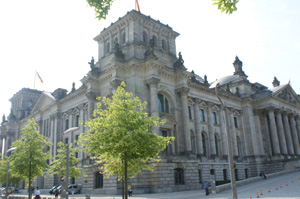
German Chancellor Angela Merkel`s candidate has failed to win an absolute majority in the second round of the presidential election in the Bundestag.
A crucial final ballot must now be held after rebel votes in the ruling centre-right coalition of Christian Democrats and pro-business Liberals twice deprived Christian Wulff of an outright win.
The opposition candidate, Joachim Gauck, a pastor and former civil rights campaigner in East Germany is proving a hard nut for Wulff and his supporters to crack in what is seen as an embarrassment for Chancellor Merkel.
In the second round, Wulff fell eight votes short of an absolute majority. In the first round he was 23 short.
Observers are confident Wulff, who is governor of Lower Saxony, would ultimately win as only a simple majority is required in the third and final round.
Merkel`s coalition government is embroiled in in-fighting and bickering. It has also lost popularity in recent opinion polls as a result of package of austerity measures announced to curb spending and reduce government deficit.
A total of 1,244 elected representatives take part in the secret ballot of the Convention. Half are Federal legislators and half state-parliament nominees.
In the first round Mr Wulff – who is deputy leader of Mrs Merkel’s Christian Democratic party – fell 23 votes short of an absolute majority, taking 600 votes to Mr Gauck’s 499.
That result indicated 44 delegates from Mrs Merkel’s camp either voted against Mr Wulff or abstained.
Mr Wulff secured 615 votes in the second round, compared with 490 for Mr Gauck.
Lukrezia Jochimsen, from the far-left Die Linke party, was a distant third in both votes.
The presidential election was called after Horst Köhler stepped down in May amid criticism after he appeared to suggest German troops abroad were defending the country`s economic interests.
